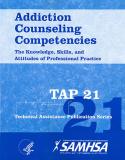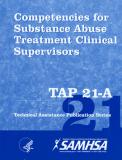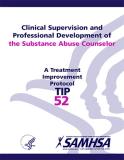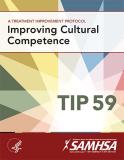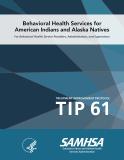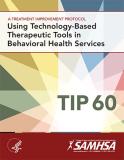
This Advisory is based on Technical Assistance Publication (TAP) 21, Addiction Counseling Competencies: The Knowledge, Skills, and Attitudes of Professional Practice. It discusses the development of the counseling competencies and the validated research on which they are based, provides a simplified overview of their structure and the elements of a typical competency, and outlines how these competencies are changing the field of substance use disorder (SUD) treatment nationwide. The Advisory also addresses the critical role of cultural competency.
Units per Product
Download
Advisory: The Substance Use Disorder Counseling Competency Framework: An Overview (based on TAP 21)
File Type: PDF
File Size: 582 KB


